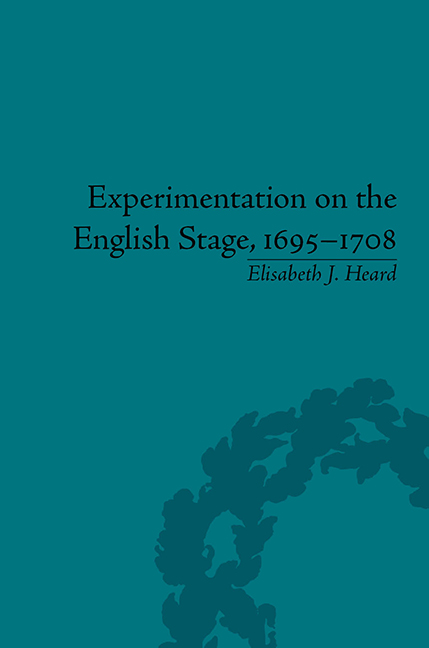Book contents
- Frontmatter
- CONTENTS
- Acknowledgements
- Introduction
- 1 The London Theatre World in the 1690s
- 2 Origins of ‘Humane Comedy’: Farquhar, Congreve, Cibber and Vanbrugh
- 3 Experimentation at the Turn of the Century
- 4 Successful Experimentation: The Recruiting Officer and The Beaux Stratagem
- 5 Farquhar's Contributions and the Post-1707 Theatre
- Conclusion: Farquhar and Anglo-Irish Drama
- Notes
- Works Cited
- Index
Introduction
- Frontmatter
- CONTENTS
- Acknowledgements
- Introduction
- 1 The London Theatre World in the 1690s
- 2 Origins of ‘Humane Comedy’: Farquhar, Congreve, Cibber and Vanbrugh
- 3 Experimentation at the Turn of the Century
- 4 Successful Experimentation: The Recruiting Officer and The Beaux Stratagem
- 5 Farquhar's Contributions and the Post-1707 Theatre
- Conclusion: Farquhar and Anglo-Irish Drama
- Notes
- Works Cited
- Index
Summary
I went over to Amsterdam in a Dutch Ship; I there had a Dutch Whore for five Stivers; I went from thence to Landen, where I was heartily drub'd in the Battle with the but-end of a Swiss Musket. I thence went to Paris, where I had half a dozen Intreagues, bought half a dozen new Suits, fought a couple of Duels, and here I am agen in statu quo (Sir Harry Wildair, The Constant Couple)
Sir Harry Wildair – a bumbling, grandiose, yet likeable character – and his various misdeeds in George Farquhar's The Constant Couple (1699) were representative of the beginning of a new era in English comedy. Audience's theatrical preferences were changing, and the overtly sexual, bawdy plays of the 1670s and 1680s were quickly falling out of favour in the 1690s. Farquhar's Sir Harry was the introduction of a different type of character – one whose humanity and three-dimensionality were clearly evident through his actions and dialogue. Throughout the course of approximately thirteen years (c. 1695–1708), stock characters and plots that were popular in the previous thirty years were slowly replaced by new, inventive, interesting and highly original theatrical elements.
This book argues that experimentation was the driving force behind the change in comedy at the turn of the eighteenth century, as playwrights experimented with what worked and what did not work on stage. Levels of success and failures are determined by historical facts: how many nights a play ran, how many times it was revived throughout the course of the century, how people commented upon a play (positively/negatively) in letters, journals, etc. By looking closely at the theatrical seasons over the course of approximately fifteen years, and by examining the new plays written by the major playwrights of the period, a pattern of experimentation arises. Playwrights, in an attempt to write a successful play, experimented with combining elements from older comedies (for example, a standard marriage plot) with new and unique elements (for example, characters who defy stereotyping). This pattern of experimentation with old and new elements can be found in virtually all of the plays written by the playwrights of this time.
- Type
- Chapter
- Information
- Experimentation on the English Stage, 1695–1708The Career of George Farquhar, pp. 1 - 10Publisher: Pickering & ChattoFirst published in: 2014

